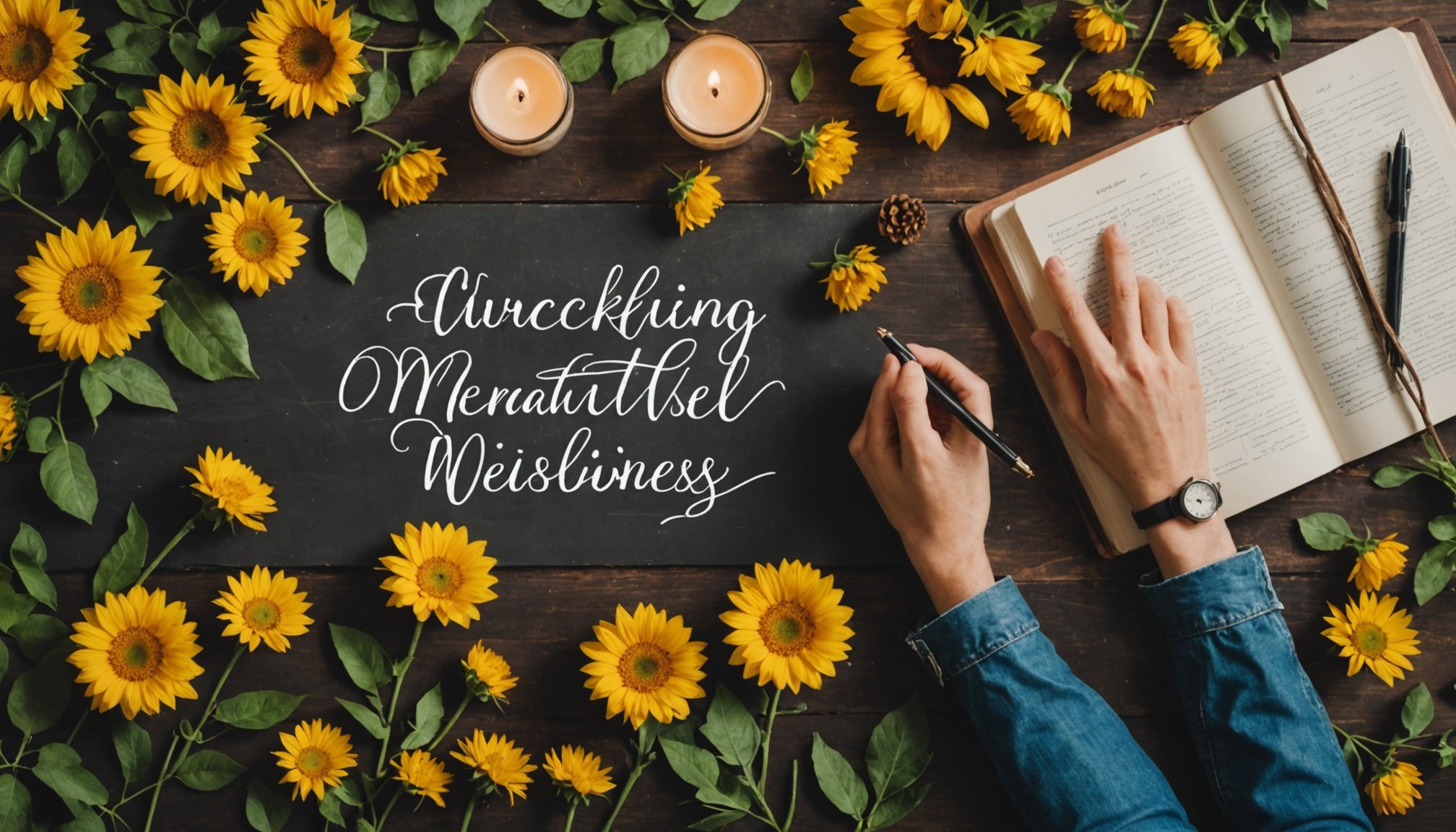Unlocking Mental Wellness: The Surprising Advantages of Cultivating Gratitude
In a world where stress and anxiety are increasingly common, finding effective ways to enhance our mental well-being is more crucial than ever. One simple yet powerful practice that has garnered significant attention in recent years is cultivating gratitude. Gratitude, in its simplest form, is the act of appreciating and acknowledging the good things in our lives, even in challenging circumstances. Here, we will delve into the numerous benefits of practicing gratitude and how it can positively impact various aspects of our lives.
What is Gratitude?
Gratitude is more than just a feeling; it is a mindset that can be developed and strengthened over time. It involves recognizing and appreciating the positive aspects of our lives, no matter how small they may seem. This practice is rooted in the idea that focusing on what we have, rather than what we lack, can significantly improve our mental and emotional well-being.
Have you seen this : Unlocking Mental Wellness: Harnessing the Power of Journaling for Emotional Growth
The Benefits of Practicing Gratitude
Improving Mental Health
Practicing gratitude has been shown to have a profound impact on mental health. Here are some of the key benefits:
-
Reducing Stress and Anxiety: By focusing on the positive aspects of our lives, we can reduce the impact of negative thoughts and emotions. Studies have shown that people who practice gratitude have lower levels of stress and anxiety. For instance, an study by the University of Kentucky found that individuals who practiced gratitude were more empathetic and less aggressive, indicating better emotional regulation[1].
Additional reading : Choose menstrual protection: discover your best options today
-
Protecting Against Depression: Gratitude can act as a buffer against depression by fostering a more positive outlook on life. It helps individuals to appreciate the good things, even in difficult times, which can prevent the onset of depressive symptoms[1].
-
Enhancing Self-Esteem: Practicing gratitude can also boost self-esteem. An experiment on athletes showed that those who practiced gratitude had higher self-esteem and performed better in sports events. Additionally, gratitude reduces social comparisons, making individuals less envious of others’ achievements[1].
Improving Physical Health
The benefits of gratitude extend beyond mental health to physical health as well.
-
Better Sleep Quality: Noting down feelings of gratitude before bed can improve sleep quality. This is because focusing on positive thoughts can calm the mind and prepare the body for restful sleep[1].
-
Stronger Immune System: Regular practice of gratitude can contribute to a general sense of well-being, which in turn helps combat illnesses. By reducing stress levels, gratitude can enhance the immune system[1].
-
Better Physical Health: Grateful individuals often report feeling physically healthier. While the exact mechanism is not fully understood, it is believed that gratitude can reduce stress levels, which in turn improves physical health[1].
How to Practice Gratitude
Incorporating gratitude into your daily life is easier than you might think. Here are some practical ways to start practicing gratitude:
Keeping a Gratitude Journal
- Daily Reflection: Set aside a few minutes each day to write down things you are grateful for. It could be something as simple as a good cup of coffee, a beautiful sunset, or a supportive friend.
- Specificity: Be specific about what you are grateful for. Instead of just writing “family,” write “I am grateful for my family’s support and love.”
- Consistency: Make it a habit by doing it at the same time every day, such as before bed or during breakfast.
Expressing Gratitude to Others
- Verbal Appreciation: Express your gratitude to people who have made a positive impact in your life. A simple “thank you” or acknowledgement can go a long way.
- Written Notes: Write thank-you notes or emails to people who have helped you. This can strengthen relationships and make both you and the recipient feel good.
- Acts of Kindness: Show gratitude by doing acts of kindness for others. This can create a positive cycle of gratitude and kindness.
The Positive Impact on Relationships
Gratitude not only improves our individual well-being but also enhances our relationships with others.
Strengthening Social Bonds
- Empathy and Compassion: Practicing gratitude makes us more empathetic and compassionate towards others. This can lead to stronger, more meaningful relationships[1].
- Social Support: Expressing gratitude to others can make them more willing to help and support us in the future. It fosters a sense of community and mutual support[1].
Improving Communication
- Positive Interactions: Focusing on what we are grateful for in our relationships can lead to more positive interactions. It encourages us to appreciate the good things our partners, friends, and family do for us.
- Conflict Resolution: Gratitude can also help in resolving conflicts. By acknowledging the positive aspects of a relationship, we can approach conflicts with a more constructive and less confrontational mindset.
Comparing Gratitude with Other Wellness Practices
To better understand the impact of gratitude, let’s compare it with other popular wellness practices.
| Practice | Benefits | Ease of Implementation |
|---|---|---|
| Gratitude Journaling | Improves mental health, physical health, sleep quality, and relationships | High |
| Volunteering | Reduces stress and anxiety, improves self-esteem, and fosters social bonds | Medium |
| Shopping Therapy | Provides temporary mood boost, improves emotional regulation, and self-esteem | Low |
| Healthy Eating (Ghee) | Improves physical health, reduces inflammation, and supports immune system | Medium |
Real-Life Examples and Testimonials
Personal Stories
-
Overcoming Depression: Sarah, a 30-year-old marketing executive, struggled with depression. She started keeping a gratitude journal and noticed a significant improvement in her mood and overall well-being. “Writing down things I’m grateful for each day helped me focus on the positive aspects of my life and reduced my negative thoughts,” she shared.
-
Strengthening Relationships: John, a father of two, began expressing gratitude to his family members daily. He noticed that his relationships with his wife and children became more positive and supportive. “Saying thank you and acknowledging the good things they do has brought us closer together,” he said.
Practical Advice for Incorporating Gratitude into Your Life
Starting Small
- Begin with One Thing: Start by writing down one thing you are grateful for each day. It could be something as simple as a good cup of coffee or a beautiful day.
- Make it a Habit: Incorporate gratitude into your daily routine, such as right before bed or during your morning coffee.
Being Consistent
- Daily Reflection: Set aside a few minutes each day to reflect on what you are grateful for.
- Weekly Review: Take some time each week to review what you have written in your gratitude journal. This can help you see the positive patterns in your life.
Expressing Gratitude to Others
- Verbal Appreciation: Express your gratitude to people who have made a positive impact in your life.
- Written Notes: Write thank-you notes or emails to people who have helped you.
Cultivating gratitude is a simple yet powerful way to improve our mental and physical health, strengthen our relationships, and enhance our overall well-being. By incorporating gratitude into our daily lives, we can focus on the positive aspects of our lives, reduce stress and anxiety, and improve our sleep quality. Whether through keeping a gratitude journal, expressing gratitude to others, or simply taking a moment each day to reflect on the good things, practicing gratitude can have a profound and lasting impact on our lives.
As the psychologist Robert Emmons, a leading researcher on gratitude, once said, “Gratitude is the practice of recognizing and appreciating the good things in life. It is a powerful tool for improving mental health, relationships, and overall well-being.”
So, take the first step today. Start your gratitude journal, express your gratitude to someone you appreciate, or simply take a moment to reflect on the good things in your life. You might be surprised at the positive impact it can have on your mental wellness and your life as a whole.











